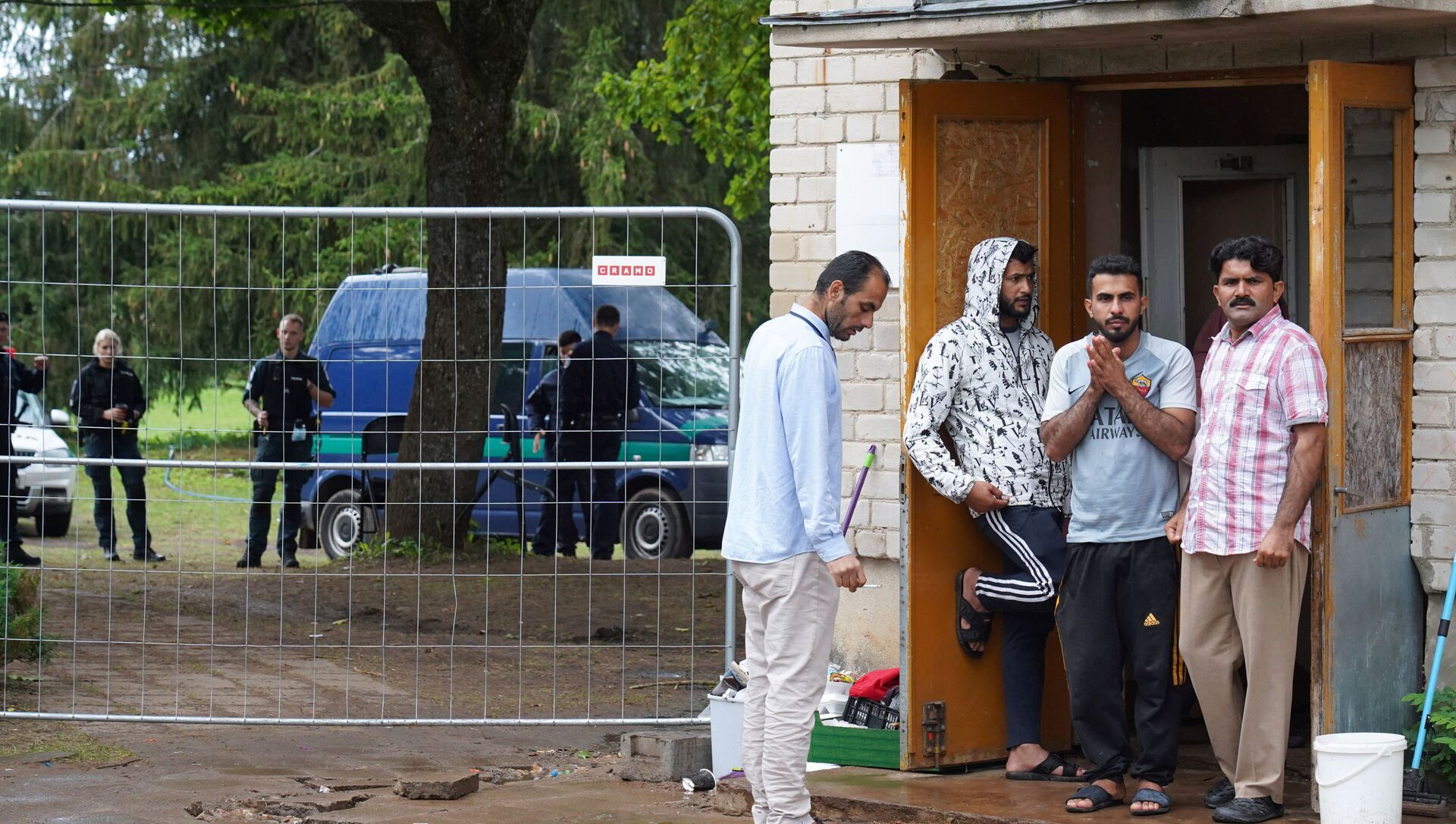Europe Registers 59 Percent Surge in Illegal Immigration in Comparison With Last Year
22:22 GMT 14.08.2021 (Updated: 23:33 GMT 14.08.2021)

© REUTERS / JANIS LAIZANS
Subscribe
Recently, some European countries raised concerns that the unstable situation in Afghanistan would trigger an influx of illegal immigrants, leading to a repeat of the 2015 European immigration crisis.
The European Union has recorded a dramatic increase in illegal immigration, reporting a 59 percent surge in illegal border crossings in comparison with the same period last year, the European Union’s border and coast guard agency Frontex announced on Saturday.
According to the latest estimates, in July the EU saw “17,300 illegal border crossings, 33% more than in the same month last year.” Also, 14,600 illegal immigrants were registered in June. During the current year, 82,000 illegal border crossings have been recorded, presenting a 59 percent increase over the same period in 2020.
“The Central Mediterranean route accounted for the highest share of illegal border-crossings in July, followed by the Western Balkan route,” the agency said.
In this route have been seen 7,600 illegal border crossings. “This brings the total for this year to 30 800, a 96% increase compared with last year,” according to Frontex, and the majority of migrants have come from Tunisia, Bangladesh and Egypt.
Apart from that, 7,350 crossings have been seen on the sea route toward Spain this year, “roughly in line with last year’s trend (6 500),” 7,350 – on the Western African route, 130 percent more than last year.
The only area showing a decrease in the amount of illegal border crossings was the Eastern Mediterranean and Greece, where Frontex observed 1,065 crossings, a drop over the first seven months of 2021 of “33 percent and reached 9 000 compared with 13370 the year before.”
In July, #Frontex registered 17 300 illegal border crossings, 33% more than in the same month last year.
— Frontex (@Frontex) August 12, 2021
The highest increase has been observed on the Central Mediterranean route https://t.co/UBwZ91tVCn pic.twitter.com/XdOINENYtv
Earlier, Greece implemented a number of restrictions for migrants from Syria and Turkey, after the latter opened its borders with Greece in February 2020 to release hundreds of migrants who were gathered on its borders. In response, Greek authorities increased border security and introduced expedited deportations of migrants who have been denied refugee status.

A staff member of European Union's border agency FRONTEX operates an aerostat balloon system equipped with high tech surveillance cameras, in Alexandroupolis, Greece, August 10, 2021. Picture taken August 10, 2021
© REUTERS / ALEXANDROS AVRAMIDIS
The recent successes of the Taliban* militants have increased fears of another wave of migrants in Europe. On August 10, six EU countries; Austria, Belgium, Germany, Greece, Denmark and the Netherlands, appealed to the European Commission, urging EU authorities not to halt deportations of rejected Afghan asylum seekers, otherwise the states would be forced to automatically provide temporary asylum to all immigrants from Afghanistan.
*Taliban is a terrorist organisation banned in Russia and other countries

